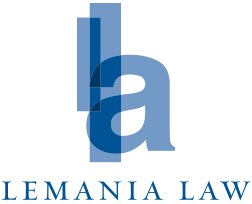Best Agriculture Lawyers in Geneva
Share your needs with us, get contacted by law firms.
Free. Takes 2 min.
List of the best lawyers in Geneva, Switzerland
About Agriculture Law in Geneva, Switzerland
Agriculture in Geneva, Switzerland plays a crucial role in the economy and culture of the region. The legal framework surrounding agriculture is designed to ensure sustainability, protect the environment, and promote the well-being of farmers and consumers.
Why You May Need a Lawyer
There are several situations where you may need legal assistance in the field of agriculture in Geneva. This can include disputes over land use, contracts with suppliers or buyers, regulatory compliance, and issues related to water rights or environmental protection.
Local Laws Overview
In Geneva, Switzerland, the laws governing agriculture are comprehensive and cover a wide range of issues. Some key aspects include zoning regulations for agricultural land, subsidies and incentives for farmers, animal welfare standards, and food safety regulations.
Frequently Asked Questions
1. Can I start a farm in Geneva, Switzerland as a foreigner?
Yes, it is possible for foreigners to start a farm in Geneva, Switzerland, but you may need to meet certain residency and investment requirements.
2. What are the main subsidies available for farmers in Geneva?
There are various subsidies available for farmers in Geneva, including support for organic farming, sustainable practices, and rural development projects.
3. How can I resolve a dispute with a neighboring farmer over land boundaries?
If you have a dispute with a neighboring farmer over land boundaries, it is advisable to seek legal advice to understand your rights and options for resolving the issue.
4. What are the environmental regulations that farmers in Geneva need to comply with?
Farmers in Geneva need to comply with environmental regulations related to water use, waste management, pesticide use, and conservation of natural resources.
5. Can I sell my produce directly to consumers in Geneva?
Yes, farmers in Geneva can sell their produce directly to consumers, but they need to meet certain quality, labeling, and safety standards.
6. Are there any restrictions on livestock farming in Geneva?
There are regulations in Geneva that govern livestock farming, including standards for animal welfare, hygiene, and disease control.
7. How can I protect my agricultural land from development in Geneva?
You can protect your agricultural land from development by entering into conservation agreements, applying for agricultural zoning designations, or participating in land trust programs.
8. What are the labor laws that apply to agricultural workers in Geneva?
Agricultural workers in Geneva are subject to labor laws that govern working hours, wages, health, and safety standards.
9. How can I apply for government grants for my farm in Geneva?
You can apply for government grants for your farm in Geneva by contacting the relevant agricultural agency or department and submitting a proposal that meets the criteria for funding.
10. What are the penalties for violating agricultural laws in Geneva?
The penalties for violating agricultural laws in Geneva can vary depending on the nature and severity of the offense, but they may include fines, sanctions, or even criminal charges.
Additional Resources
For more information on agriculture law in Geneva, Switzerland, you can contact the Geneva Department of Agriculture, the Swiss Farmers' Union, or local legal aid organizations that specialize in agricultural law.
Next Steps
If you require legal assistance in the field of agriculture in Geneva, Switzerland, it is advisable to consult with a qualified attorney who has experience in agricultural law. They can provide you with guidance on your rights and options, help you navigate complex legal issues, and represent your interests in negotiations or court proceedings.
Lawzana helps you find the best lawyers and law firms in Geneva through a curated and pre-screened list of qualified legal professionals. Our platform offers rankings and detailed profiles of attorneys and law firms, allowing you to compare based on practice areas, including Agriculture, experience, and client feedback.
Each profile includes a description of the firm's areas of practice, client reviews, team members and partners, year of establishment, spoken languages, office locations, contact information, social media presence, and any published articles or resources. Most firms on our platform speak English and are experienced in both local and international legal matters.
Get a quote from top-rated law firms in Geneva, Switzerland — quickly, securely, and without unnecessary hassle.
Disclaimer:
The information provided on this page is for general informational purposes only and does not constitute legal advice. While we strive to ensure the accuracy and relevance of the content, legal information may change over time, and interpretations of the law can vary. You should always consult with a qualified legal professional for advice specific to your situation.
We disclaim all liability for actions taken or not taken based on the content of this page. If you believe any information is incorrect or outdated, please contact us, and we will review and update it where appropriate.












